
By QUINTON SMITH/YachatsNews.com
Trying to become a Lincoln County commissioner is becoming more popular — but don’t expect two races in the May 17 primary election to determine an immediate winner.
Ballots are already arriving in the mail for the 40,043 people who have registered to vote in Lincoln County. They are due – including now being allowed to be postmarked the last day – by 8 p.m. May 17.
Because there are so many county commission candidates – nine total – running for two positions, it’s unlikely that any one candidate will get more than 50 percent of the vote. That means the top two candidates in each race will square off in the November general election.
Five men – including three who already hold public office — are seeking Position 1 on the Lincoln County Board of Commissioners to replace Doug Hunt, who is retiring in December after 10 years.
Three men – one of whom holds a public office – are challenging first-term incumbent Kaety Jacobson for Position 3 on the board.
To avoid a November runoff between the top two candidates, one person has to get more than 50 percent of the vote. The last time that happened is when Jacobson unseated incumbent Terry Thompson in the May 2018 primary – when there were just those two candidates in the field.
Going back to May 2014, whenever there have been four or more candidates seeking a county commission position there has always been a runoff in the November general election.
Voter turnout in a non-presidential May primary election will also be a factor. Voter turnout in non-presidential primary years has been 6 to 21 percentage points lower in primary races when Democrats or Republicans are not choosing their presidential candidate. Other than the Lincoln County races, the most interesting partisan races on the May 17 ballot are among the 36 candidates seeking their party’s nomination for Oregon governor, or a crowded Democrat field (there is just one Republican on the ballot) seeking an open Fourth Congressional District seat in Congress.
There are now 40,043 registered voters in Lincoln County. In the last non-presidential primary in May 2018, 45.7 percent of Lincoln County voters – 15,550 – cast ballots. Four years ago just 13,190 – or 38.8 percent – cast ballots in a four-way commission race that led to a November runoff between Hunt and Jenny Demaris, the county’s emergency services manager.
Election official sees 50 percent turnout
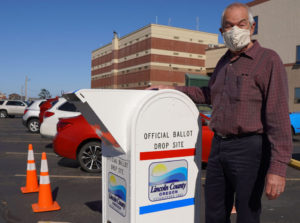
Lincoln County Clerk Dana Jenkins believes the nine people campaigning for the two commission positions will result in a voter turnout of about 50 percent – much higher than the non-presidential primary turnouts in 2018, 2014 and 2010.
But determining the top two finishers may take longer than normal this year.
Oregon legislators changed voting laws to allow any mail ballot with an official U.S. Post Office postmark on May 17 to be counted. Previously, they had to be in the hands of county clerks by 8 o’clock election night – with officials warning voters to use drop boxes or hand deliver ballots 3-4 days before an election.
Now they can be mailed on election day up until Post Offices close.
That means ballots will trickle in to the county the following 2-3 days, Jenkins says, and could be enough to keep tight races suspenseful.
“It’s hard to predict because it’s the first election that we’re doing this,” Jenkins told YachatsNews. “But we think there’s going to be quite a few coming in the next day.”
That also means the clerk’s office will be releasing results just once on election night, and then again at 5 p.m. Wednesday, 5 p.m. Friday and 5 p.m. Tuesday, May 24.
Some other voter tidbits from Jenkins:
- For the first time Lincoln County has more than 40,000 registered voters; last November there were 38,926;
- Non-affiliated voters – residents who declined to register with a political party – now outnumber either Republicans or Democrats. There are 14,861 nonaffiliated voters in Lincoln County, 13,592 registered Democrats, 8,701 registered Republicans, and 2,889 people registered with minor parties.
Candidates and money
A rare open county commission seat and dissatisfaction over board decisions or the general state of the county appears to be driving force between the number of candidates in the primary race.
Position 1: Port of Newport commissioner Walter Chuck, Waldport Mayor Greg Holland, Lincoln City councilor Mitch Parsons, county public information officer Casey Miller and restaurant owner Carter McEntee are seeking the $85,000-a-year commission seat.
Position 3: Jacobson, who was elected in May 2018, is being challenged by Newport city councilor Ryan Parker, retiree and former restaurant owner Mark Watkins of Newport and Randy Mallette of Otis.
While there are differences or approach on issues, there are also differences in the fundraising necessary to mount an active, countywide campaign. According to the Oregon Secretary of State’s campaign and expenditure reports, here’s what the candidates are reporting as of Thursday:
Position 1:
Chuck: He is participating in voter forums but does not plan to spend more than $750 on his campaign;
Holland: Is not accepting donations and has funded his own campaign with $11,800. He has spent $12,300 as of this week on media purchases and signs;
McEntee: The first-time candidate has generated at least two complaints to the state for not filing required contribution and expenditure reports until mid-March. McEntee blamed that on filing mistakes by his former treasurer. He’s fixed that and as of this week has reported $8,750 in contributions, including $5,400 from his Salishan restaurant, and expenditures of $2,580;
Miller: Reported $5,700 in contributions, expenses or personal expenditures of $8,000 and is relying heavily on public appearances and social media to campaign;
Parsons: Has reported $5,100 in contributions and $4,800 in expenses;
Position 3:
Jacobson: Had a beginning balance of $2,178 from her 2018 race; has reported $13,300 in contributions – and far and away more individual donations than any other candidate – and expenditures of $10,300;
Parker: Has reported $4,200 in contributions and $3,125 in expenditures;
Watkins: Also did not file the state-required contribution and expenditure reports until he became aware of the requirement in mid-March. He gave $5,000 to his campaign, has $6,855 in contributions from 11 individuals, and reported $5,000 in expenses.
Mallette: Has been participating in candidate forums, but does not plan to spend more than $750 on his campaign.
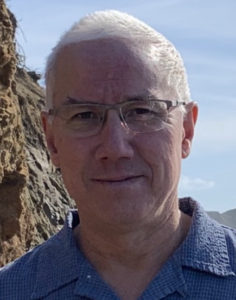

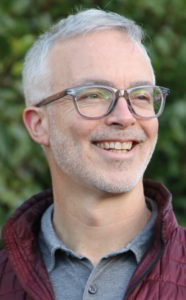
Lincoln County Position No. 1 questions and answers
McEntee and Parsons did not respond to YachatsNews’ requests to participate.
What is your education, professional and work/business background?
Walter Chuck: Cupertino High School, attended Mission College, Santa Clara, Calif.; professional chef, sales, and currently water plant operator for the Hiland Water District, Otis.
Greg Holland: Law degree, University of West Los Angeles; master’s degree in political science, Pittsburg State University; bachelor’s degree in political science, Missouri State University. Practiced family law and divorce mediation in Los Angeles. Now retired.
Casey Miller: 14 years as public information officer for Lincoln County commissioners and emergency management department. Yuba City High School, associate degree Yuba College; bachelors degree University California-Davis; numerous Federal Emergency Management Association certifications, CrossFit certified trainer, mountain biking coach.
What is your prior volunteer, civic or governmental experience?
Holland: Mayor of Waldport since January 2021; Waldport City Council 2008-2020; Waldport Planning Commission 2007-2008; founder and current president of the nonprofit Alsea Bay Center for the Arts; past vice president, Waldport Beachcomber Days.
Miller: County public information officer, training in National Incident Management System. Volunteering includes serving on the Coastal Equity and Inclusion Committee, Newport Visual Art Center Committee, Lincoln County Community Rights, Newport Chamber of Commerce Ambassadors, Newport Area Trail Stewards board, and others.
Chuck: Port of Newport Commissioner; Cascade West Council of Governments; Cascade West Area Commission on Transportation; chair and vice chair Ocean Policy Advisory Council, Ports, Navigation and Marine Transportation; chair/vice chair Oregon Coastal Zone Management Association; Port of Newport representative on Oregon Intergovernmental Renewable Energy task force; Fishermen Involved in Natural Energy sports fishing representative; PacWave site placement team; adviser to Pacific States Marine Fisheries Commission; involved in youth football and track, Newport School of Dance, food pantry, Mouse Factory Preschool board, youth fishing events, and Oregon Wild Sheep Foundation board.
Why are you running for this office?
Miller: I am looking forward to modernizing many of our business practices. Currently, the county does not articulate short-term goals and its long-term strategies. A countywide plan would help us have better focus and accountability. This focus will extend itself into the internal quality control for collaborative management and budget planning. Community engagement is also a needed area of improvement. I would like the board to prioritize community feedback upfront in its policy development. Let’s take advantage of our community wisdom.
Chuck: I see my candidacy as another opportunity to continue my work for the community at a higher level.
Holland: I’m running because we need actual change. I have real plans for action that come from my experience as mayor of Waldport and 12 years on Waldport City Council. I’m self-funding my campaign, so you’ll know I’m not beholden to political action committees, special interests, or big donors. I’m also doing my filings on OreStar. Check out the other candidates to see if they’re even filing and who their donors are. The county isn’t going after any grants outside of wildfire-related where Kaety Jacobson is doing a stellar job. The county’s needs are so great we must do more. We need affordable housing and solutions to homelessness. The mayors I regularly meet with have a homeless plan we’re working on together. If it falls through, I’d propose tiny unit housing for those who wish to transition out of homelessness and provide counseling, training, and services on site.
What in your personal, professional/work and civic background makes you think you would be a good addition to the three-member board of commissioners?
Holland: I’ve had 14 years of tough decision-making with razor-thin Waldport city budgets, deciding what priorities we had to favor over others to balance the budget. We’ve gotten rid of as much waste as we could and through savings paid off old debts saving the city’s future interest payments. I’ve pushed to bring stakeholders together, as we’ve done in Waldport. We brought short-term rental management companies and citizens together before we had a nightmare short-term rental problem. We wrote ordinances that everyone could live with. We formed ordinances about short-term rental noise, parking, trash, and licensing and put in enforcement. I now have people outside the city limits telling me they wish their neighborhood was within the city limits. I’ve dealt with city problems daily; I’ve been approached at Ray’s Market or the Post Office. This is part of being a public servant — you solve problems. I’ve been doing it for 14 years in Waldport and now I want to do it for the county.
Chuck: My experience and long record of engagement in the public and in public processes. I have worked with the three current and past county commissioners on various issues as well as city, state and federal officials and agencies. The value of having these relationships and access is an asset that I would bring to the position.
Miller: For 14 years I have been providing excellent support to each commissioner. An elected official has passion, skills and priorities. I also have spent 14 years supporting the board to function well as a team. As a governing body of three, they must collaborate and problem solve together, week after week. A commissioner is an effective combination of three inputs (1) the voice of the community (2) the expertise and capability of their staff (3) their own critical thinking, skills and work ethic. As a new commissioner I’ll understand what I can do and what I can realistically expect from my support team (county staff and citizens). This is not just a theoretical guess from me as a potential elected official. I have lived the reality of the workflow and work capacity that is possible. Additionally, the delivery of services is provided by human beings (staff). I understand what it means to be an employee of the government and what is needed to bolster the enthusiasm and passion to get the most out of the county’s workforce. That’s not only a perspective that is needed, it is a perspective that no other candidate brings to the table.
The coronavirus pandemic the past two years has had a huge impact on almost everyone and everything in Lincoln County. With its available resources, how do you think the county performed? What was best; where could it have improved?
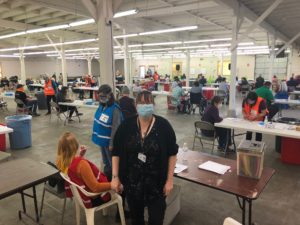
Miller: I think we performed well. One of the best outcomes was having some of the highest vaccination rates in the state. This proved that local government was responsive and creative. Of course, credit goes to our citizens as well. Our community did a great job looking out for each other. I believe many employees, like myself, had a deeper revelation that our work is more than just a job. County government is very essential on many levels for both public health and economic health of our community. Needed improvements include the capacity to sustain emergency response and to be able to identify which of our workforce can be moved into our emergency operations as the circumstances require it.
Holland: Most of the edicts came from Governor Brown and hindsight is always 20/20. I just want to say that I’m proud of Waldport and the way we looked out for each other during the pandemic.
Chuck: I would hope that the commissioners and county departments take some time to do an after-action review to do an assessment of how they performed and where they could have done better.
Lincoln County government has money issues – rising costs and flat revenue. How do you tackle that within the county’s budgetary process? Be specific.
Chuck: Study up on past and current county budgets and attend this year’s budget discussions. Reach out to elected and unelected department heads listen to what their needs are with the understanding that one size doesn’t fit all. A good budget is a collaborative effort.
Holland: Budgets are always tough. I’ve had 14 years of experience in dealing with Waldport’s. I’m sure it has to be one of the toughest in the county. We stretch it every year to cover increasing costs without any offsetting rise in revenues. We need to examine waste in the county. Can county services be provided more efficiently at a lower cost? I’ve had some county employees approach me with suggestions about lowering costs. We need to build stronger relationships with our congressional and state leaders. We need more money from the federal and state for a multitude of projects including affordable housing, infrastructure, homelessness, and economic development. I’ve worked with Rep. David Gomberg, D-Otis for 10 years and now Sen. Dick Anderson, R-Lincoln City and am meeting with the congressional candidates as they pass through to build the needed relationships to get the funding for the coast.
Miller: Any budget can be adjusted by cuts in spending and/or increases in revenue. In a healthy economy, county government sees a modest increase in property taxes, which are capped at 3 percent. But the continual pressure of personnel costs and inflation challenge the government year to year to do more with less. In an atmosphere of possible staff and services cuts, it is important to remember that many county services are legally required. That acts as a baseline for prioritization. The county is currently grappling with how it will close the gap and deliver a balanced 2022-23 budget. The first workshop last week with the county’s management team revealed that we are not on a sustainable path with a current request of $3.3 million. How to close the gap? (1) A freeze on vacancies; (2) Identify areas to spend less; (3) Identify possible state and federal grants; (4) Raise fees on services; (5) Inventory of essential services and non-essential services then prioritize accordingly; or (6) Possible elimination of staff positions. This year’s budget process is currently in flux. In the coming weeks a more accurate picture will develop. Nevertheless, as the budget committee is tasked with balancing the budget, difficult decisions are on the horizon unless departments can sharpen their pencils and find unforeseen revues and expense reductions. We are being careful to overstate or overreact for the moment. A proposed budget is expected in the next few weeks.
Like much of Oregon, but especially tourist areas, Lincoln County has a housing problem that may be related to larger forces out of its control. But at a local level, what can the county do better (and more?) to help with affordable housing?
Holland: We surveyed the developable land in Waldport and now are working on removing obstacles to one large parcel for development. It might be wise for the county to locate some parcels for development, contact owners, and see if there are any obstacles that the county might overcome that could lead to development. We need new, creative ideas to get out of the housing shortage crisis. Accessory dwelling units are one solution being proposed. Another idea being used by several counties is Home Share Oregon. It’s a roommate situation, but with a lot more safety built-in. Some counties give a tax break on property taxes for home sharing through the program.
Miller: Creating more affordable housing will reduce houselessness. But, it will not completely eliminate houselessness. The county in partnership with other jurisdictions and stakeholders have created a housing strategy plan. This document provides our community with good guidance about how to tackle the affordable housing problem. We need to build and innovate upon this work and identify housing in our future strategic planning. One of the more immediate pathways available to us is increased leniency on accessory dwelling units. This is only a slice but it is lower hanging fruit. Restricting short-term rentals is another way to increase affordable housing. Many short-term rentals are indeed suitable for families. Zoning innovations are yet another way to allow smaller and more dense housing. Increasing childcare resources will allow families more ability to enter the workforce and improve household income to afford housing. There are many ways to address the problem. But, can we reach a consensus to uniformly respond together? We need to ask ourselves why in such a wealthy country there is so much inequality and suffering.
Chuck: Work with local, state officials and local partners to come up with options and locations to address this situation. In order to properly address this issue the staff and steady funding source needs to be identified and secured to truly make this successful.
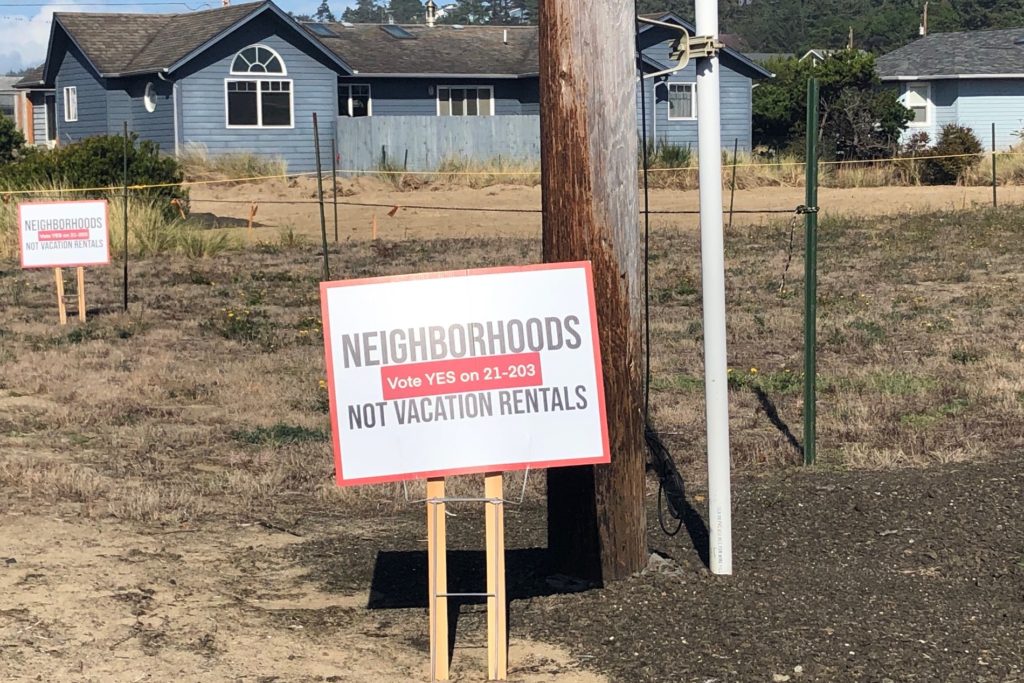
What is your overall philosophy on short-term rentals in unincorporated Lincoln County? Did you support Ballot Measure 21-203 in November 2021, or the county’s own STR ordinance, or some other idea? Or, is current oversight of vacation rentals in unincorporated areas enough?
Miller: My hope is that when and where there are short-term rentals they should be “invisible” in regard to their neighborhood impact. I’ve experienced long term rentals that were quite disruptive. To say that short-term rentals are uniquely problematic is not necessarily accurate, in my opinion. Every neighborhood has character. Somewhere on the timeline of evolving county short-term rental regulations their popularity as getaway retreat and investment opportunity exploded. At the same time the community reached a breaking point of diminished housing availability and costs of available rentals. Simultaneously, there were regulations that did not reflect or respect neighborhood values – and thus the birth of Ballot Measure 21-203. Frankly, I did not think the measure would pass. Perhaps, that shows my lack of insight into the frustration of our community. Interestingly, the entire community was able to vote on a policy that did not necessarily apply to them. I find this a curiosity and wonder if the outcomes might have been different if only unincorporated voters were allowed to vote on a policy that only applies to unincorporated areas. County commissioners are charged with defending the will of the people as expressed in the election approving Measure 21-203. As a new commissioner, if Measure 21-203 is still in litigation I will ensure that our government is doing everything it can to support its legal defense before the state Land Use Board of Appeals. If 21-203 is upheld, then I will ensure that the county is making every effort to support the roll out of our measure and that the integration of Ordinance No. 523 supports (not diminishes) the measure where possible. Note, it is optional for the commissioners to revise Ordinance 523 to further reflect the will of the people. I see no reason that (Ordinances 524, 525,526, etc.) cannot further create more restrictions on short-term rental activity should that be desired by our community.
Chuck: I am an elected official and strongly believe in and support the will of the voters. I would closely follow the appeals process and implement the parts of the ballot measure that we could and later the ones that were approved during the process.
Holland: The fact is that county commissioners won’t be able to do anything about the short-term rental problem until all the lawsuit appeals make their way through the court system. The county is potentially on the hook for hundreds of thousands of dollars in legal fees defending the ballot proposition in court — not to mention what 15neighborhoods or the property management companies are spending on their legal fees. The lawyers are the only winners. It’s always that way. I know. I’m a lawyer. My feeling is the commissioners shouldn’t have waited for the citizenry to take up arms and write a ballot proposition that may or may not survive a legal test. The commissioners should have called all the stakeholders in and at least attempted to form a compromise that everyone could have lived with. If elected, I promise to let no other issue fester into a ballot proposition. Lincoln County simply can’t afford to spend the legal fees and we shouldn’t. As I used to tell my clients, court rulings usually have no true winner, leave everyone unhappy about something and cost you a lot of money.
Commissioners and their staff have been involved in a very public personnel disagreement with the district attorney. What is your sense of this? How are the key players acting? How would you have addressed or resolved this issue?
Chuck: I was not privy to all of the discussions, events or involved enough to understand the whole picture and to speculate without that background would be not give justice to both sides. If I were to be elected I would meet in person with the persons involved and try to come up with the best solution for the county.
Holland: This should have been worked out behind the scenes, as it eventually was. It’s something I would certainly work to change as a County Commissioner.
Miller: My overall sense is that the commission was slow to move on the request from the district attorney. This is an internal process that is routine for the county. The final decision on the job description was painfully drawn out compared to the simplicity of the final determination of the job description. The time in between the district attorney’s original request and its resolution was filled with lots of publicized drama and conjecture. I struggle to see good in elected officials being negatively charged. I ask that we all lean toward kindness and professionalism even when we feel victimized. It is possible to stand up to perceived oppression with composure. Let’s all communicate more often and do it with sincerity.
This month, the county has a new administrator for the first time in its history. Do you agree the county needs one? If so, what is your hope for how this new person helps county operations? If not, explain why.

Holland: I did attend most of the public “meet the public administrator candidates” forums. Unfortunately, I had to miss the eventual new hire’s session. I was at the time not sold on the need for a public administrator. I cannot imagine one person taking on the whole workload of what I envision that the county needs to accomplish in the next four years. I still feel like the commissioners are going to have to still be assigned a massive amount of work to accomplish on their own. I promise to work with the administrator and I will want to see results. We need to justify to the voters the county administrator position and the commissioners’ full-time paid positions. I plan on being transparent by publishing my weekly calendars to show you I’m on the job.
Miller: Currently, the new county administrator has duties and authority previously only allowed to the commissioners and legal counsel. The job description describes the duties and Ordinance 517 creates the legal authority. The commissioners are still ultimately responsible for the performance and direction of the administrator. I do not believe this new position is excessive. I do not believe it negates the work that can be done, should be done and is desired by our community from a commissioner. As a future commissioner, this administrator will provide me more breathing room and capacity to do the work this community desires. I think it is an exciting time and I have high hopes. But, the commission can turn back the clock if that is necessary. An elected official such as a county commissioner could easily work 24/7 in service to the community. I believe there is much need and much to do. But having a work life balance is both smart and responsible. For our elected officials and all Americans, especially those with families, we should prioritize time outside of our work routines. Productivity and work capacity is determined by a commissioner’s drive, motivation and skill. A commissioner’s job description describes the type of work to be done. This job description does not define how much work is being accomplished, however. Historically, we evaluate our satisfaction with our elected officials through the election cycle. I argue that both the commissioner and community need not wait every four years to evaluate performance. With modern strategic planning and descriptive goal setting we’ll provide ourselves the criteria to evaluate the performance and productivity of our paid leaders.
Chuck: The previous county counsel had been assisting the commissioners in this role for some time. I would hope that the new county manager would function in the same manner as well as bring some new ideas to the table from his previous positions. Addressing staffing issues and economic development should be one of the top priorities.
Are there areas or departments of the county’s operations that need more help or scrutiny? If so, what, where and why?
Miller: Our legal department, especially with the retirement of Wayne Belmont, has been stretched thin. The amount of accountability and responsibility the county counsel’s office has to our organization is massive and would be served by more capacity. Emergency management needs to build a deeper bench for continuity of operations in case of a significant disaster. We need more cooperative and inter-jurisdictional training to serve each other during a disaster. County government has faced much stress resulting from the coronavirus pandemic and wildfires. Health and Human Services felt undeniable stress responding to the pandemic. The planning department has been overwhelmed with the massive building and real estate activity. This department is essential for rapid development. Recently, a long-time building inspector left the department and it’s worth noting the wildfires have added significantly to the load.
Chuck: One of the county’s main duties is to provide services, and an understaffed and overworked workforce cannot provide good services. Filling vacancies in departments and acknowledging the different needs of certain departments, the sheriff’s office for one, to fill their vacancies. One factor that will also need to be addressed is the lack of housing for these new employees.
Holland: As a new commissioner, I would ask each department ahead to come up with a list of the most vital needs in each department so that we can begin working to address those needs. Our first task must be meeting the needs of our citizens and our county. (Having just finished a CASA training and been sworn in, I’ve noticed in one area that our foster parent program needs some new recruitment programs in place.) I am sure upon examination of each department, we can find a list of such needs we can identify and start to work on.

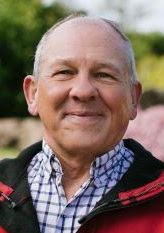
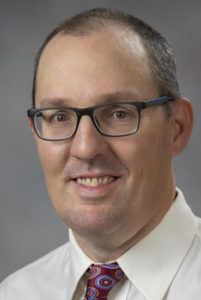
Lincoln County Position No. 3 questions and answers
Mallette did not respond to YachatsNews’ requests to participate.
What is your education, professional and work/business background?
Kaety Jacobson: I grew up in Newport and graduated from Newport High School, have a bachelor’s degree in natural resources from Oregon State University and a master’s degree in coastal zone management from Nova Southeastern University. I spent several years working as a naturalist guide for Marine Discovery Tours in Newport, and several more years as a marine educator at the Hatfield Marine Science Center. I briefly worked at the Oregon Coast Aquarium as the youth volunteer coordinator. I spent 15 years working for Oregon State University’s Oregon Sea Grant Extension program as a fisheries extension agent and managed the Lincoln County OSU Extension office for the last five years of that. At Oregon Sea Grant, I worked with commercial fishermen, scientists, policy makers, and conservation groups on collaborative ocean and fisheries research. I led the process to select the site for the PacWave energy project and designed and executed programs to help educate the public on local sustainable seafood. I wrote and managed grants and consulted with scientists to help them build more community integrated research projects. I also was professionally trained as a facilitator and was often consulted by the governor’s office on how to design public processes around marine policy. I was also called on by other states to help build processes for marine policy conversations and help resolve ocean user conflicts.
Ryan Parker: I have a bachelor’s degree in journalism/public relations from the University of Oregon. Since 2008 I’ve been a park ranger with Oregon Parks and Recreation. For 11 years of those years I have been patrolling the coast from Tillamook through Coos Counties, removing marine debris and working on the Oregon Coast Trail. Before 2008 I was an English teacher in Japan and South Korea, and then a small group adventure tour guide. Prior to that I was a therapeutic wilderness councilor for adjudicated youth.
Mark Watkins: I have been a resident of Lincoln County for over 40 years, raising a family and having owned and operated multiple restaurants for 25 years. Graduated from Everett High School, Lansing, Mich. and attended Olivet University. I have been a profitability consultant with FSA/US Foods and on the South Beach Church board.
What is your prior volunteer, civic or governmental experience?
Parker: I am serving my fourth year on the Newport City Council, where I have advocated for transparency, a shift to sustainable policy, electric vehicle adoption when cost effective, for nuisance single-use plastic service ware, smarter water uses for industrial and residential customers, and a focus on improving the urban tree canopy health. I served on the U.S. Forest Service Resource Advisory Council in 2021, delegating millions of Title II federal funds to a variety restoration and habitat project funding on the Siuslaw National Forest.
Watkins: Newport city manager hiring committee; 20 years on the Newport Airport advisory committee; and, currently a captain on the Lincoln County Search & Rescue Team.
Jacobson: I have been a foster parent in Lincoln County for over 10 years and am the past president and current board member of the Lincoln County Foster Parent Association. I currently serve on the Oregon Land Conservation and Development Commission, the Bureau of Ocean Energy Management offshore wind task force, Toledo safe drinking water task force, Family Support Court advisory committee, OSU Extension advisory committee at the local and state level, and president of the Oregon Coastal Zone Management Association. I was previously president of the Newport Fishermen’s Wives and on the board of the Lincoln County Historical Society, and served on the United Way allocation committee for Lincoln County, and Lincoln City urban renewal work group.
Why are you running for this office?
Watkins: I am running for this position after I determined the sentiment, direction and failed leadership has led to multiple lawsuits against the current board — verified after several personal friends who work within our county system called me to express their concern as well. I will not allow this destructive pattern to continue in my county.
Jacobson: Lincoln County has seen some unimaginable challenges in the last three years — a worldwide pandemic, a major wildfire, as well as the usual challenges such as climate change, housing, and childcare, to name a few. I am running again for office because of all of you. I feel my skills are still needed in this role, to help us recover and thrive and to take on other challenges we face. Things have been hard, but what is amazing is all of you — your service to one another and your willingness to help wherever you could. It is an amazing community to serve, and I want to continue serving in this role to help all of us build a better Lincoln County. My skills, connections, and advocacy are still needed to support in these efforts. I have tested, proven leadership at a time when we most need it.
Parker: The board has not recently created any program that I’m aware of to help Lincoln County’s working families and seniors on fixed incomes. Nor has it shown vision to stand up and measurably protect our environment that we all cherish. I have extensive experience in government in that I have calluses from manual labor, and that perspective is clearly missing at the management level. My gut feeling on this was cemented after Lincoln County Community Rights got the aerial pesticide spraying ballot measure passed by voters and then a Circuit Court judge overturned it, based on a legal opinion I found to be deeply flawed. The county counsel at the time did not support or defend the measure, and showed no interest in the rights of county citizens to not be over-sprayed, which has been a documented problem across the Oregon Coast Range. It’s always promises with county commissioners and then inaction on election years, followed by platitudes and more promises.
What in your personal, professional/work and civic background makes you think you would be a good addition to the three-member board of commissioners?
Jacobson: Good commissioners are like Swiss Army knives. The more tools you have the better you are at serving. My background gives me a tremendous number of skills, I can facilitate conflict, write grants, build programs, build trust, advocate, evaluate a program, build relationships, provide leadership, educate, and leverage my large network of relationships to build partnerships and get things done. Skills matter as a commissioner. I have personally written more than $15 million in grants to help with the Echo Mountain Fire recovery. I built relationships with Legislative Emergency Board members to get them to pass funding for a hotel purchase, which they did, and that property is now Coastal Phoenix Rising in Lincoln City. I worked to bring partners together to have more tools in place for accessing and declaring drought. I also always come to the table with respect for others. If I have disagreements with my fellow commissioners, with staff, with other local governments or with a constituent, I am always respectful and civil. Even when faced with death threats (that is unfortunately part of the job as well) I still maintain civility and respect.
Parker: With a three-member board, consensus must be prioritized and emphasizes the importance of thoughtful, reasoned dialogue with the county’s citizens to create the best outcomes. It is essential that meetings allow for the full board of commissioners to be present, get the facts and understand what’s at stake with each and every vote. Lately, Doug Hunt has missed a number of meetings, and that is unfortunate, since two of three present means there is no strong indicator of leadership and a chance for a 1-to-1 tie, killing the proposed motion. The vanity and disconnect to working people by the current board is obvious and it is off-putting. I’d work with anyone that comes to the table with their true feelings to help county citizens behind them.
Watkins: Having lived here since 1981, and devoting this time in many leadership roles, I have developed community awareness and the leadership skills to operate this county in a effective, confident and transparent way that will bring back public trust and pride within our local government operation and department heads. This is my pledge.
The coronavirus pandemic the past two years has had a huge impact on almost everyone and everything in Lincoln County. With its available resources, how do you think the county performed? What was best; where could it have improved?

Parker: We at the city of Newport took Urban Renewal Agency taxes and created a business support program, giving $980,000 back to business owners who applied right when they were shuttered and were trying to meet payroll. That was a program the county chose not to pursue through their available tools to finance such a program – a huge swing and a miss. The county did set up a business license payback scheme, which was at least something. Keeping the courthouse closed was something that could have been reconsidered. Newport City Hall was open before the courthouse. The past two years were unusual, but access to services was severely curtailed, despite full tax collections and salaries being issued.
Watkins: Any catastrophic, frightening and scary community event is when its citizens need their leaders to me more present and communicative for knowledge of actions and to ease the social fears these events cause. In my opinion, our current commissioners failed their constituents during the pandemic and Otis fires. The Emergency Broadcast System, using AM/FM radio signals, during the Otis fires completely failed. A local call center was established as a reactionary program to inform locals, but cell phone service in the northernmost parts of the county were non-functioning, rendering the EverBridge emergency community text notification useless. Fortunately, due to the quick response and bravery of all first responders and their door-to-door efforts, not one life was lost.
Jacobson: Given what we knew about the virus at any given time and the resources we had, I feel we did fairly well. Perfect, of course not. This was our first time going through a worldwide pandemic and what we did right was working with city governments early on to have discussions about response as a group. I made good connections with Oregon State University’s TRACE program, which provided free testing in our community so we could understand our positivity rate. We also did well with vaccines and I am so incredibly proud of our community for having one of the highest vaccine rates in the state. We achieved this because of Lincoln County Public Health, Lincoln County Emergency Management, Samaritan Health, fire departments, pharmacies, the Olalla Center, volunteers, and the public who provided their arms. I fought incredibly hard to keep the supply of vaccines coming into Lincoln County after the state reduced our allocation to zero by saying that we needed to let larger, metropolitan counties catch up. Where Lincoln County and other organizations could have done better is being more connected to our Latinx community in the beginning of the pandemic, been more inclusive with our information and had more bicultural people involved in our response. With the help of many amazing partners, I feel that we did get to a place of better inclusivity, but it was not where it needed to be in the very beginning. Having more trust already built ahead of time would have helped tremendously, rather than trying to build trust in the midst of outbreaks.
Lincoln County government has money issues – rising costs and flat revenue. How do you tackle that within the county’s budgetary process? Be specific.
Watkins: According to the U.S. Treasury Department, Lincoln County is scheduled to receive $9,704,533 in state and local fiscal recovery funds, some of which I believe, has already been distributed to local entertainment businesses. These funds should be easily defined within our budget and allocation rules available to the public. We do not have a budget problem in our county.
Jacobson: Working with our management team of both elected and appointed department heads is a critical step towards addressing this. These are often hard conversations, as no one wants to cut services or have forced position vacancies. A tool that I am looking into is zero-based budgeting — a different process than normal budgeting. Zero-based budgeting starts from zero and examines every function of an organization for its needs/services and associated costs of those needs/services. Taking on zero- based budgeting would be a huge undertaking, but I believe it would help in addressing rising costs by better examining every service and cost at the ground level which then allows for better decision making when it comes to staffing, which is our greatest expense.
Parker: Giving Georgia Pacific a 15 year tax abatement for their waste digester was not advantageous for the working taxpayers of this county. As a large multinational corporation, they could have sought funding directly from their operational budget or other internal financing. Our tax dollars are precious and should be spent on direct services to the people. The Commons project proposed by commissioners needs a reboot and I would vote against any tourism-focused project that includes bonded debt. We simply need to re-think the whole fairgrounds and re-develop all the failing buildings there, partner with the private sector to build housing on the site, with commercial zoning at street level. I would love to see a simpler, cheaper fairgrounds in Toldeo or Siletz because their summer weather is so much nicer. After serving on the city of Newport Budget Committee for Newport, I understand that there is a rigid budget framework. What expenses translate to direct citizen services like law enforcement, road repair and fire risk reduction? Those need more prioritization. We can use transient rental taxes to improve way-finding signs for county parks, etc.
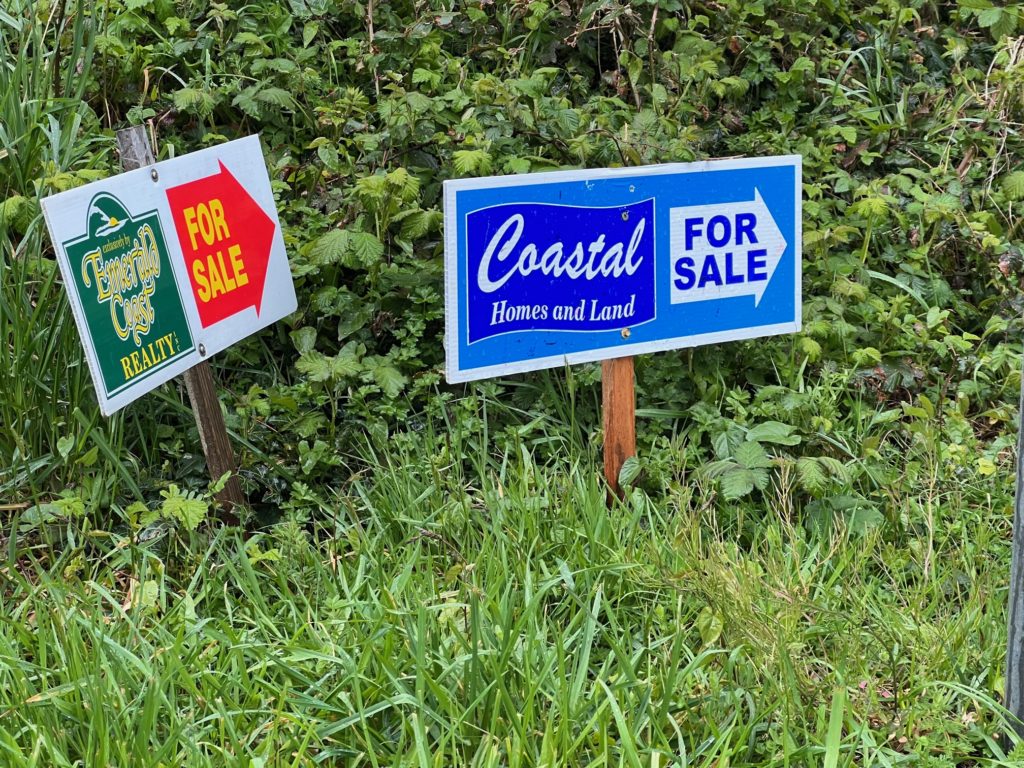
Like much of Oregon, but especially tourist areas, Lincoln County has a housing problem that may be related to larger forces out of its control. But at a local level, what can the county do better (and more?) to help with affordable housing?
Jacobson: Through reallocation of existing funds, Lincoln County is in the process of releasing a request for proposals to hire a housing consultant. That consultant will work with other local governments to help execute the county’s 2019 housing plan by locating available land, doing site development planning, and helping us piece together funding sources to execute these projects. Additionally, we need supportive housing for our residents and is often a model used to address chronic homelessness. We do have supportive housing models in Lincoln County, such as Samaritan House in Newport and Coastal Phoenix Rising in Lincoln City. In order to have more supportive housing projects we need to help build the capacity of our non-profits so they can take on more supportive housing projects. The county has already started providing high quality training to non-profits and I believe we can expand on this to provide additional training on business practices, grants management, tenant laws, board development, and other topics that will help them build and maintain their capacity. This will enable use to go after more funding for supportive housing projects that these organizations can manage. Wildfire survivor housing has also been a major part of my work and I am proud to have successfully advocated for a fixed income wildfire survivor housing project to be built in Lincoln City. I am also working with the state to develop a tiny home village — maybe more than one — in north Lincoln County.
Parker: Forces out of control sounds defeatist. I’m running because I feel the people who aren’t represented now have much more power than they might think they do. We’re a constitutional democracy with a framework of direct representation, and we should spotlight this and move away from forces outside Lincoln County making decisions that extract our wealth and leave us economically damaged. We should focus on regional pooling of resources, limit outside expenses by doing work in-house as much as possible. Low bid doesn’t mean good quality. We should empower Lincoln County Housing Authority to build more units, on land they already own. We should set a resident-friendly development framework for multifamily project, including The Commons. We can improve county transit options for workers who live in Corvallis and Philomath but commute to labs at Hatfield Marine Science Center. We can clarify and create incentives to actually increase ADU construction but codify that they become short-term rentals. Tiny home villages are coming, but we need a comprehensive county ordinance and septic planning documents to speed up the design and permitting aspects of such project. And engagement with inventoried lands not currently being built is the elephant in the room. We need to secure more county lands and partner with Habitat for Humanity to get any stable housing starts we can, through outreach, system development charges incentives, and collaboration.
Watkins: This complicated issue must involve help from the state level. I plan to work with local planners and community leaders to expand our urban growth boundary, incentivize investment partners to ensure our county is investor friendly, and look at any and all available opportunities for housing development.
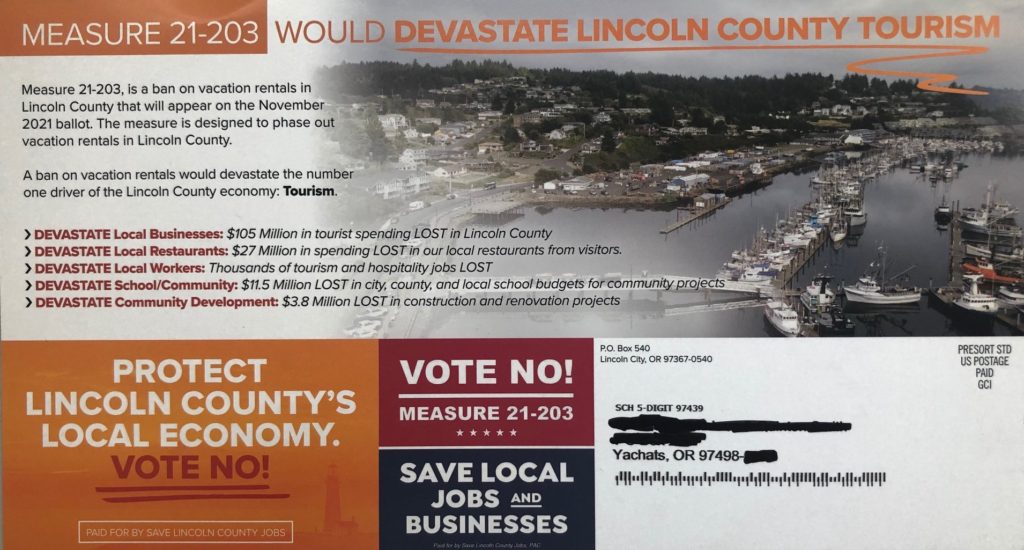
What is your overall philosophy on short-term rentals in unincorporated Lincoln County? Did you support Ballot Measure 21-203 in November 2021, or the county’s own STR ordinance, or some other idea? Or, is current oversight of vacation rentals in unincorporated areas enough?
Parker: Large short-term rentals create a number of neighborhood livability issues, especially with parking, noise in some cases, and they do sit on a footprint of land that is bigger than most single-family homes. However, the industry got big quick and some neighborhoods in Lincoln County have become dominated by short-term rentals. If elected, I would find the appropriate legal framework to implement the voters’ intent — a phase-out (five years was the proposal) to non-conforming uses. The property could be sold as a residence, remodeled to include ADUs or used as a long-term rental. Long-term housing is a need and the county has a limited buildable lands inventory. We need to maximize starts for housing of all kinds, the kinds designed for people that live and work here. Many homeowner associations have a 30-day rule to maintain neighborhood character, including the one I lived in. It originally didn’t, and the nightly flipping of guests and associated traffic became a problem, as it has across the county and coast wide. Residents are emotionally invested in a place; visitors aren’t and should be directed to incorporated areas like central Newport and Lincoln City that have capped short-term rentals. Those caps are an imperfect but thoughtful compromise that aims to minimize the impact but still have places for visitors to stay.
Watkins: I am empathetic to both sides of this issue. However, our former county Counsel Wayne Belmont wrote a three-page letter to the current board of commissioners on Nov. 16, 2020, with manageable and fair recommendations and warning them if no action was taken, this polarizing situation will end up in litigation. Our current board decided to take no action, and now has our county in multiple lawsuits, using tax dollars in defense of their incompetence to effectively bring parties to the table, do the hard work, and keep the fate of our communities out of the hands of the Land Use Board of Appeals.
Jacobson: I did not support Ballot Measure 21-203 as I felt it would open the county up to legal challenges where we would have to spend money on defending, which it has. I am not opposed to short-term rental restrictions and was one of two commissioners that put a temporary hold on licensing, which ended up being in place for almost two years A version of that original moratorium is still in place now. Because voters passed the ballot measure, it is the county’s responsibility to defend it and we have hired outside legal counsel to do just that. Additionally, it was not just the ballot measure that had legal challenges. The county’s own STR ordinances have had several legal challenges and we have been successful in defending some of those already. I do think that short-term rentals in unincorporated Lincoln County do need to be restricted. Once we have a final ruling on the ballot measure, it will then be a tremendous lift by the county and commissioners to implement the ballot measure (assuming it is upheld). If it is not upheld or pieces of it are not upheld, then it will be up to commissioners to work with the public to come up with an alternative, legally allowable approach. It is difficult to say what that approach may be, as we do not know what the outcome of the ballot measure is at this time.
Commissioners and their staff have been involved in a very public personnel disagreement with the district attorney. What is your sense of this? How are the key players acting? How would you have addressed or resolved this issue?
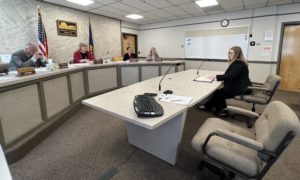
Watkins: Again, this situation should have never happened, and shows a level of incompetence and unethical treatment to a model, 23-year county employee. A congratulatory letter was written to Detective Abby Dorsey dated Jan. 26 welcoming her to her new role under the district attorney’s office effective March 1. How excited all parties must have been, only to find out through an email that the current board of commissioners had changed their minds, resulting in more lawsuits filed against the county, several department heads and current board, wasting valuable tax dollars for their defense. This is a very embarrassing situation that has tainted the trust and image of our county counsel, human resources department and current board of commissioners.
Jacobson: There are still several things in relation to this matter that I am legally not able to discuss. The situation was one of the harder things I have dealt with as a commissioner and not being able to publicly discuss certain elements makes it difficult to respond. I will say that we did work through it, the position in question was approved with a modified position description and a new start date. I have received several kind thank you notes from the district attorney for my work on this matter.
Parker: My vision of the district attorney’s primary task is to prosecute crimes. In most cases if an issue arises at the county level and an investigation is required usually an outside agency heads up that investigation, such as the state Department of Justice. I don’t have access to what was said internally. The situation sounds like a battle of egos, which is a terrible public face for all sides of county leadership. I would expect that a position that was needed by the district attorney and shown to have a budgeted allotment, should be approved if it was shown the funding for a detective was available for the long term. Impropriety by trusted public officials should be investigated and the report released to the public. That said, I would support a third party investigation, with a transparent report and recommendations against something similar happening again in the future.
This month, the county has a new administrator for the first time in its history. Do you agree the county needs one? If so, what is your hope for how this new person helps county operations? If not, explain why.
Jacobson: While we have never had a county administrator by title, the county has had a county administrator in function, who served as both legal counsel and an administrator. I was supportive of ripping apart the role from legal counsel and calling it what it was — a county administrator. This role does not replace commissioners or reduce their workload but complements it. For example, this person will be taking the lead on many backlogged capital projects such as the Lincoln County Animal Shelter, Lincoln County Commons project, an Emergency Operations Center, and helping us do construction planning with the state for an eventual courthouse replacement.
Parker: I am very concerned about the public taxpayer implications of salary three commissioners and the new administrator. Crunching the numbers — that’s almost $435,000 in salaries, without the other employment costs like insurance and retirement. As of 2020, commissioners earn between $7,266 and $8,464 per month. Assuming a top step for two of the current board members, that’s $101,604 gross pay each and a year three scale pay for the junior commissioner at $92,688. I do not know what the two assistant county counsels and head county council make. If elected I would accept the lowest commissioner step of $7,266 per month and work to transition the board into a part-time stipend-fueled position like Clatsop County has in place.
Watkins: It is very confusing to me why the current board decided to hire a county administrator. It appears in reading this job description he is responsible for the duties of all three commissioners. With a county of 51,000 people this position is not necessary. I would have researched the possibility of hiring a full time grant writer, or a much needed county psychiatrist.
Are there areas or departments of the county’s operations that need more help or scrutiny? If so, what, where and why?
Parker: The county road department needs two additional positions to start to manage county rights of way, for the plethora of invasive shrubs, trees and climbing vines that have covered much of the county and across jurisdictions but affecting thousands of trees here. I would like to find a way to lower the cost of the Parole and Probation program to provide the bulk of the manual control required to keep large swaths of county lands and roadsides from becoming ivy deserts, full of strangled trees. Private landowners need to be a part of the solution, as do community and youth groups looking to serve our community. The Lincoln County Sheriff’s Office needs to advocate publicly for and work with planners to create a building plan for the new animal shelter to be sited somewhere other than the Newport Municipal Airport. Animal services deputies and current temporary shelter staff should be at the table to limit or prevent entirely, the animal services tax assessment residents paying for the shelter and its services. The Planning Department should partner with planners in other coastal counties and with the state to start rulemaking about oceanfront development setbacks. Land use planning must incorporate new facts about sea level rise projections and require, by county ordinance, setbacks where appropriate. What’s oceanfront now will probably be partially underwater in 2075.
Watkins: I am not familiar enough to answer this question directly, but as a new commissioner, I pledge to spend time within every county department to gain a intimate understanding of their functions, roles, successes and areas that might need improvement with a ground-up approach, and bring back a spirit of excellence through trust and quality leadership within every department.
Jacobson: Given the rising fuel costs, and the associated impacts of fossil fuels, we have got to work on our fleet services and make the conversion to electric vehicles. There may be some kinds of vehicles, say a gravel truck, that we may not be able to find an electric equivalent of immediately, but there are many cars within our fleet that do have an electric equivalent. This conversion is not simply about purchasing electric vehicles, as we would need to ensure we have charging stations and not simply just at the courthouse. We also need to make sure our vehicle maintenance staff receives the training they need to work on electric vehicles. The initial cost of the investment for conversion may be higher than our normal replacements, but with time, that investment will reduce both our cost of fuel and have a positive impact on the environment.



Thank you very much for this article on the county commission candidates. It was not only informative about some of the candidates policy positions. But it also showed how they are approaching the job. And, perhaps, for those who didn’t participate it also reveals the value they give to south county views.
I appreciate this thorough review of the candidates to aid in my decisions. Thank you so much.